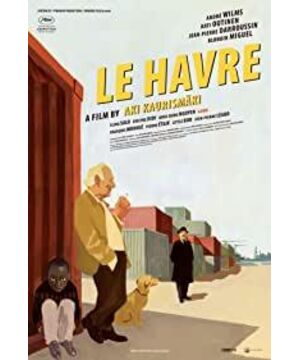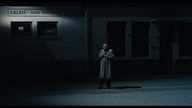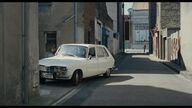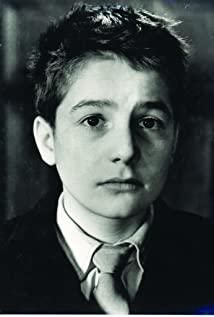When I watch the movie, the first thing that comes to my mind is not the films of the same theme that have appeared in recent years (such as the Welcome the year before last, how a swimming instructor trains an Afghan teenager to swim across the English Channel), but the "Eavesdropping Storm" by the East German secret police. . The eavesdropper took the incriminating typewriter from a dark slot under the floor, and the sheriff sat down on the hatch cover where the African child was hidden. The appearance of the two hideouts seemed familiar. Moreover, at key points in the two films, a person "in the system" defected to achieve a great escape.
The comparability of this point just brings out the incomparability of its antecedents and consequences. In a sense, the eavesdropping storm is a growth story, a process of "change". For eavesdroppers, it is from ignorant loyalty to anti-water, and for writers, it is from passive compromise to active resistance. The detective in Le Havre, from the very beginning, acted as Cao Ying with a Chinese heart, and did not hide his dissent and complaints about his duties in words, and did not shy away from blatant extrajudicial mercy in his actions—for example, when a child escaped Stop subordinates from shooting (this is an unnatural bug. In this case, the shooting is really too much, so just chase after it. If a child so old can run like a well-trained soldier, there is no need to send it back. Africa, just send the track and field team to forget it), for example, after receiving the whistleblower call, he reminded the shoe shiner to pay attention again and again.
After that, the "good guys" in the eavesdropping storm all paid the price. The writer lost his wife, the eavesdropper was punished, and he was down for a lifetime. The Inspector of Le Havre was ordered by his superiors to arrest the escaped child, as the movie makes clear. After the kid escapes under his blatant cover, he is thanked by his opponent (the shoe shiner), and the two go to a bar side by side as friends for a drink. As the sheriff, will he be held accountable? This is not the director's concern. Unlike "Pirates" - the evil in "Pirates" has a concrete incarnation, as the persecutor's Minister of Culture - the inspector's boss in Le Havre is just a faceless voiceover: in this scene of giving the order, the camera lens is always Only facing the detective alone. Likewise, the whistleblower is not in front of the camera, we only see the hand dialing the phone and hear his voice. On the shoe shiner's side, good deeds are rewarded, and they are immediately desirable: the terminally ill wife miraculously recovered, and they returned to their warm home in the slum, and happily lived together ever after. Outside the window of the shabby house, apple blossoms are blooming.
Costless good and faceless evil: so both are justifiable and justifiable. Just like when the shoe shiner asks the aunt of the neighbor bakery to help take care of the African child hiding at home, the aunt only says "No problem!". Indeed, African children are presumed to be fluent in French, well-bred, and have no African characteristics except for their skin color. In reality, the differences in customs and cultural conflicts in trivial life are often the most tolerant of local people. challenge. (Eastwood's Gran Torino can be used as a reference here.) "Righteousness" is often used together and supports each other, "righteousness" refers to things, and "courage" refers to people who achieve things. There is no clear risk, and therefore no extraordinary courage is seen, and the "righteousness" of what it does is thus lost in a sense. This paradox empties the moral admonition of the story.
But, paradox of paradox: this is still a persuasive, as well as real, film. I think it's because everyday experience tells me that such a France, off the screen, is real. Subconsciously, this is a documentary channel, not a novelist. And why I still can't help but criticize what it is not in place or "unreasonable", is that because, in some countries, sometimes, "according to human judgment", if the old lady is not knocked down by a certain A, Shouldn't he reach out to help?
View more about Le Havre reviews











